Family: Motherhood
Infertile Wife in Rabbinic Judaism
Only men are legally obligated to procreate, but there is disagreement over whether that obligation compels a man to divorce his wife after ten childless years. The initial infertility of the matriarchs reinforces the efficacy of prayer by demonstrating that the individual matriarchs’ suffering and supplications are what provoked a divine response.
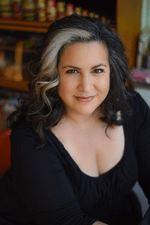
Marjorie Ingall

Jewish Women and Intermarriage in the United States
Marriages between Jews and people of other faiths have long fascinated scholars, clergy, and communal leaders, who often considered the choice of a Jewish spouse as an indication of the strength of ethnoreligious identity and commitment to perpetuating Judaism and the Jewish people. However, many Jewish women who intermarry in the United States continue to identify Jewishly, engage in the Jewish community, and raise Jewish children.
This entry uses gender as category of analysis and change over time to illuminate the experience and meaning of interfaith marriage for Jewish women in America. It describes how women navigated their ethnoreligious identities when they married Gentile men, the influences of feminism, the rise of ethnic consciousness, and parenthood.
Iraqi Jewish Women
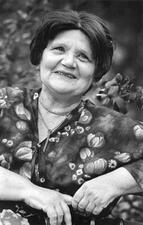
Israeli Women's Writing in Hebrew: 1948-2004
Women writers faced many obstacles in the early years of modern Hebrew, but by the end of the twentieth century they had overcome marginalization to become a central part of the country’s literature. The achievements of women’s writing in Hebrew rank among the unquestionable triumphs of Israeli feminism.

Early Modern Italy
A study of the role of Jewish women in household formation, the household, and household dissolution, as well as their engagement in Jewish culture in early modern Italy, raises the question of how much of Jewish practice reflected the context of the surrounding society and how much engaged options in traditional Jewish practices, which were selected to meet their own needs. Despite the wealth of information about some well- known women and reports of the activities of many unnamed women, Jewish women, like Christian women, still functioned in the context of women and the period does not represent a Renaissance for women.
Izieu, Women of
Nazi Klaus Barbie’s capture, deportation, and murder of forty-four Jewish children living at a home in Izieu, France, in 1944 is known primarily as a story of children, but the bravery of five women is also a significant part of the tale. Sabine Zlatin, Léa Feldblum, Suzanne Levan-Reifman, Fourtunée Benguigui, and Ita-Rosa Halaunbrenner were workers at the home or mothers of children who lived there. They played critical roles testifying against Barbie in his 1987.
The Jewish Family in Early Twentieth-Century United States
Jewish Mothers of the Plaza de Mayo
The Jewish women who formed part of the Mothers of the Plaza de Mayo were pivotal to the human rights movement in Argentina, fighting for truth and justice for victims of the 1976-1983 dictatorship that resulted in 30,000 disappeared, tortured, and killed.

Jochebed: Bible
Jochebed, wife of Amram and mother of Moses, Aaron, and Miriam, is mentioned by name only in Exod 6:20 and Num 26:59, both genealogical listings. Jochebed, whose name (Hebrew yokheved) apparently means “YHWH is glory,” is notable as the first person in the Bible to have a name with the divine element yah, a shortened form of YHWH.

Jochebed: Midrash and Aggadah
The midrash portrays Jochebed as a wise woman who was righteous and God-fearing. By merit of her good deeds, she gave birth to the three leaders of the Exodus generation: Moses, Aaron, and Miriam.
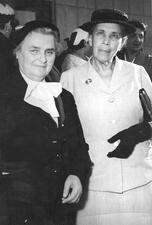
Rachel Kagan (Cohen)
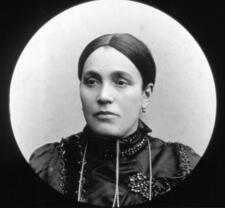
Taube Kaplan
Taube Kaplan (the Greene Rebitzin) was the principal fundraiser and founder of the Hebrew Maternity Ward, founded in 1916 in the Plateau-Mont Royal neighborhood of Montréal, Quebec. Her efforts contributed to a reduction in maternal and infant mortality in Montreal’s Jewish community. Kaplan also raised funds for the establishment of the Jewish General Hospital, which opened its doors in 1934.
Karaite Women
Family law and personal status of women are important aspects of both the daily life and the halakhah of Karaite communities. Karaite legal sources often deal with rules pertaining to betrothal, marriage, divorce, ritual purity, and incest.
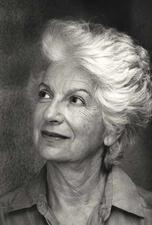
Shirley Kaufman
Shirley Kaufman’s poetry deals with family relationships, personal identity, aging and death, violence, and the meaning of Jewish fate. Moving to Israel later in life, she worked on many translations of Hebrew poetry and was noted for her series of poems about the suffering of women in the Bible, set in modern Israel.
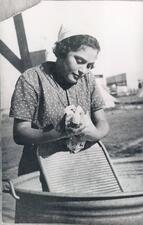
Kibbutz
Although the kibbutz was intended as an equalitarian, democratic utopia, attempts to achieve gender equality have been limited by traditional masculinities and male-controlled spheres and gender inequalities have persisted.
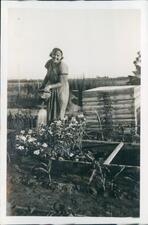
Kibbutz Ha-Dati Movement (1929-1948)
Beginning in 1929, the religious kibbutz (Kibbutz Ha-Dati) movement represented the confluence of progressive ideals of equality and collectivism and traditional customs of Judaism. As a result, women in the movement lived at a crossroads.

Kinnim (Tractate)
Tractate Kinnim (“nest” or “birds in a nest”), the last tractate in Order Kodashim (Holy Things), deals with the smallest type of sacrifice, a pair of turtledoves or young pigeons—one nest, hence the title.
Rabbi Abraham Isaac Kook
Kurdish Women
Jews lived in Kurdistan for 2,800 years, until a mass migration to Israel in the 1950s. This Jewish community’s ancient roots and relative seclusion in the Kurdistan region fostered unique religious, cultural, and linguistic characteristics. Despite assimilation and the loss of traditional practices, the community remained tight-knit.
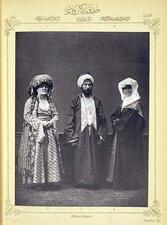
Levant: Women in the Jewish Communities after the Ottoman Conquest of 1517
Following their expulsion from the Iberian Peninsula in 1492, many Jews settled in Palestine, Egypt, and Syria – regions which fell under Ottoman Control in 1517. Girls in the Levant were married at young ages, polygamy was common, and obtaining a get was very difficult. Nevertheless, many Jewish women worked outside the home and kept their earnings.
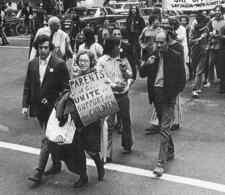
Jeanne Manford
Martyred Mother with seven sons (2MACC): Apocrypha
Following the passage of King Antiochus IV’s laws prohibiting the practice of Judaism, an unnamed mother leads a family through martyrdom.


